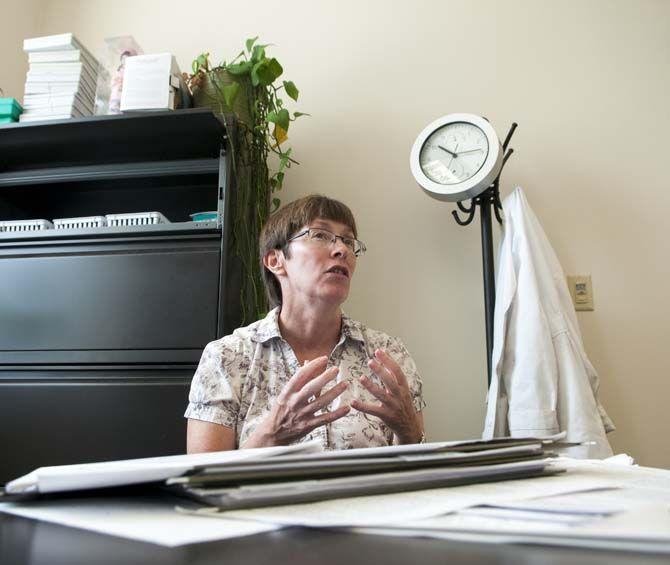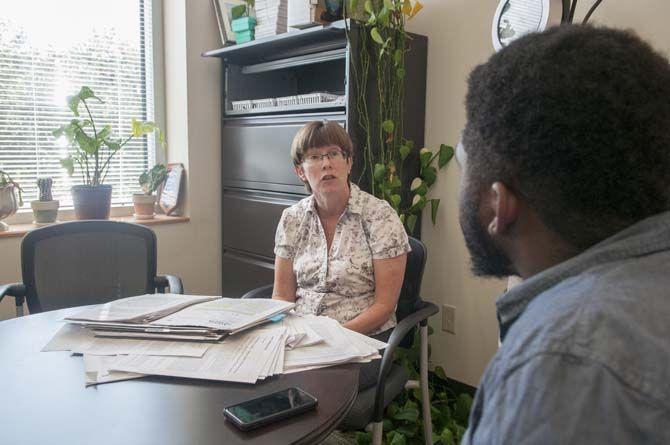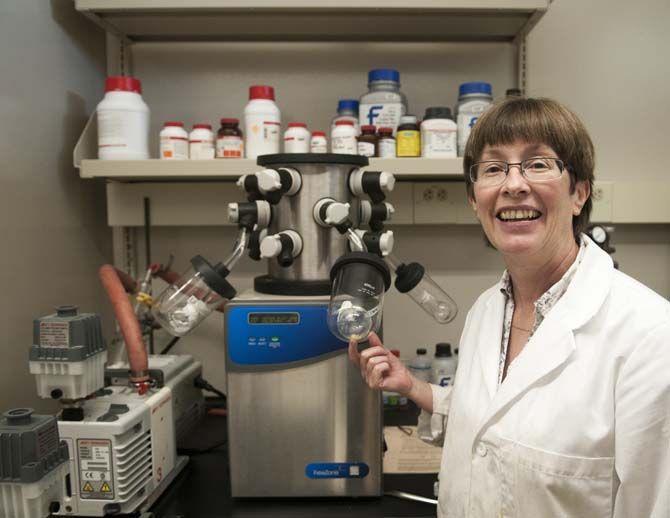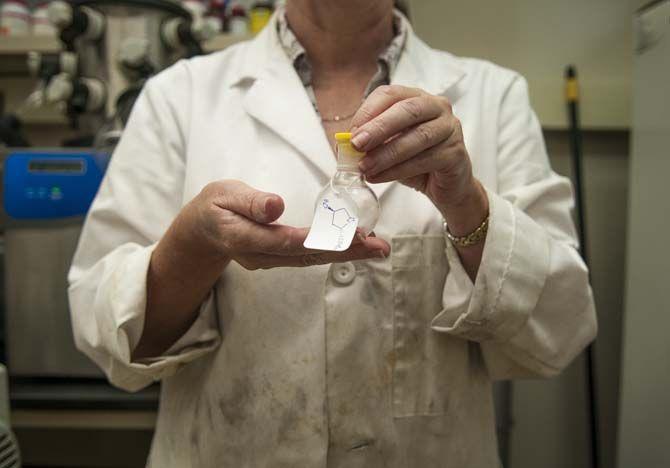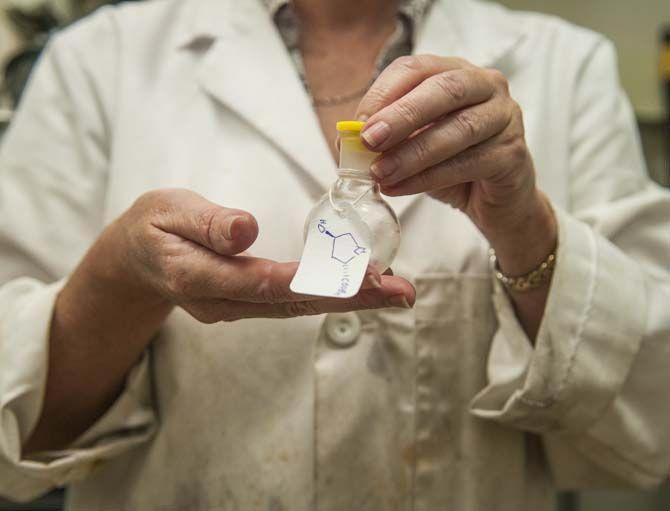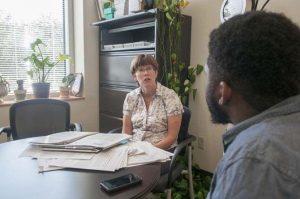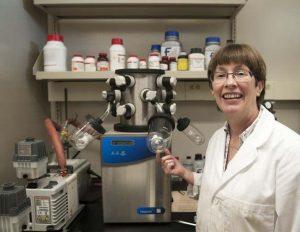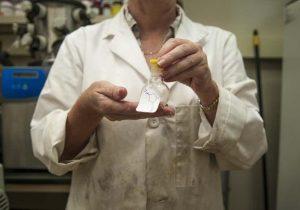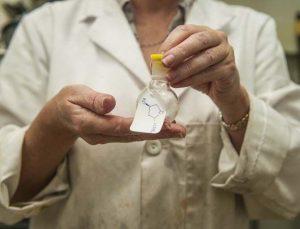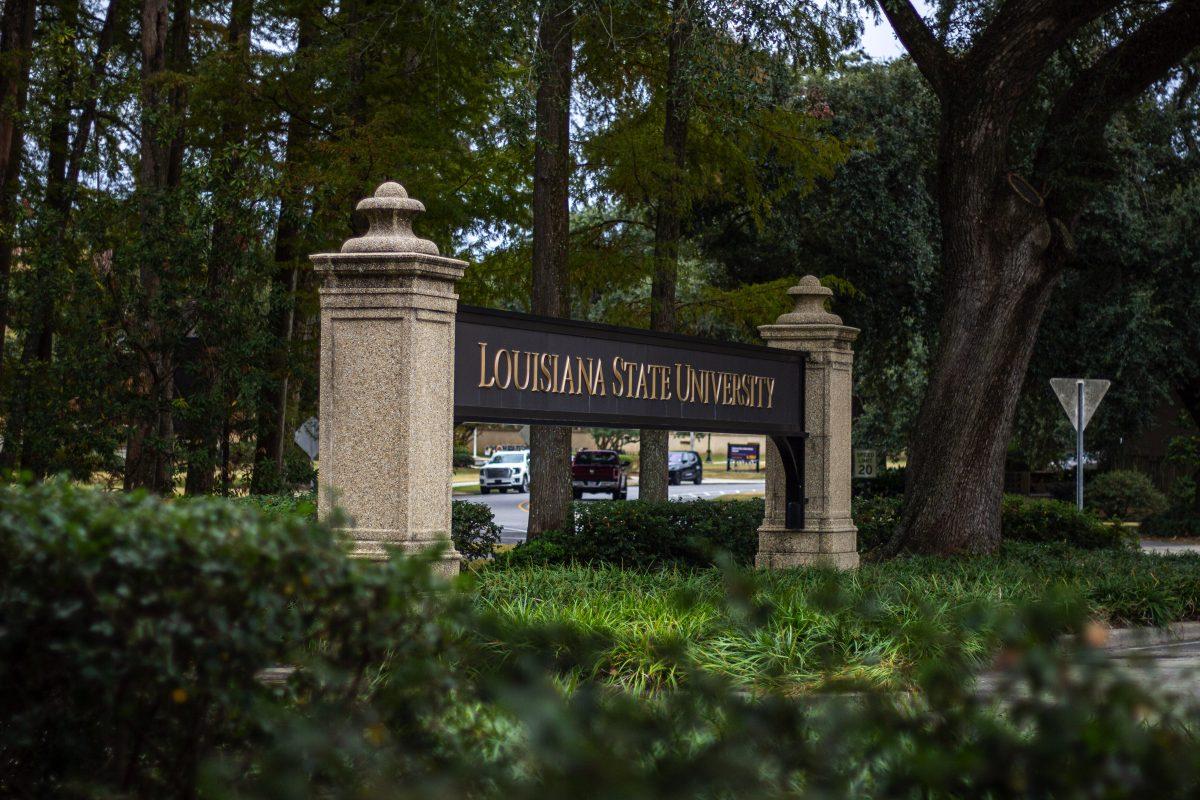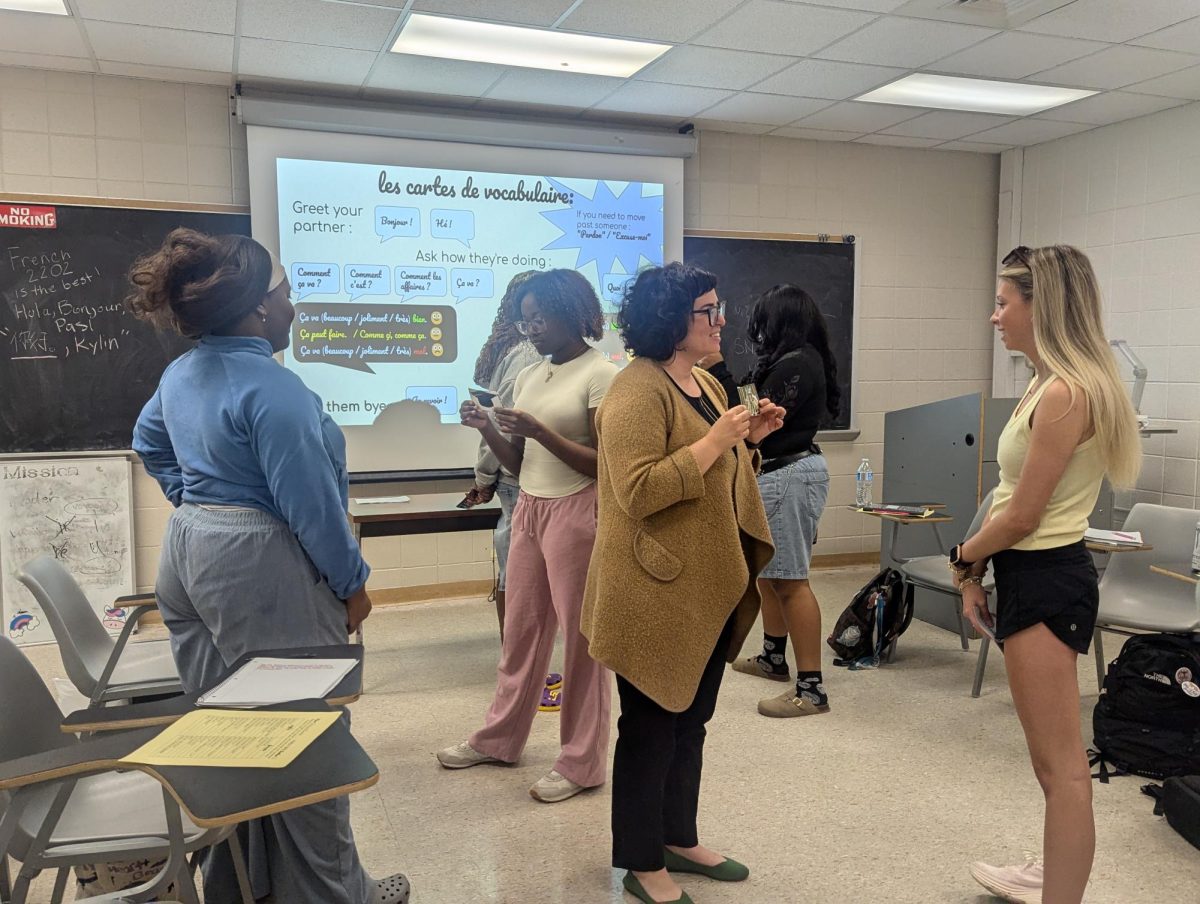LSU chemistry department chair and professor Carol Taylor is researching a molecule to combat the threat of bacterial infections with immunity to antibiotic treatment, which is being funded by a $390,000 grant from the National Science Foundation.
Taylor said her goal is to develop new approaches to formulating microbisporicins, a powerful antibiotic that could be used to fight advanced infections resistant to common medications. These compounds may result in methods that may be applicable to synthesize other antibiotics, both natural and unnatural.
She said she hopes to use organic reactions to recreate a natural compound to fight infections and create a molecule applicable to other forms of research.
She spent four years applying for grants for this project before the NSF approved her proposal.
“Often, you’ve got this project and think it’s exciting, and you propose it,” Taylor said. “Then, you get [turned down], lick your wounds, and based on the constructive criticism, you apply again.”
Taylor took a sabbatical during spring 2014, which she said allowed her to focus on her research and fine-tune her proposal on molecules combatting infectious bacteria.
In the laboratory, research is done on a molecular level, Taylor said. Since researchers are working with such small particles, they must be precise in their movements and meticulous in their notes.
Her team includes a post-doctoral researcher, graduate students and a few undergraduates looking to acquire lab experience.
“As an undergrad scientist, everyone should have a research opportunity,” Taylor said. “It’s easy to sit in classrooms and go to labs with canned experiments, but research is hard work … to experience the discovery process and learn [about] the work that’s involved is worth the time.”
Taylor said she can no longer spend so much time in the lab now that she is chemistry department chair. She placed trusted graduate students, including Joshua Lutz, in leadership roles to help out the team’s undergraduates.
“I’ve started to learn how research is done on the cutting edge of things,” Lutz said. “No one knows how to do the things we do because they’ve never been done before.”
Taylor usually teaches organic chemistry classes but will not this semester. She said engaging in real-life application of classroom material is what she wishes most students had the opportunity to do. Taylor said when these undergrads have a research experience, it allows them to get hands on experience of the things she teaches in the classroom.
“Organic chemistry is easy on paper,” Taylor said. “It’s a lot more difficult in the lab. You have to be good with your hands, as well as your brain, to be successful here. So the research we’re doing is exciting for its potential application and great training experience for the researchers involved.”
Chemistry professor recieves $390K research grant
September 3, 2015
Carol M. Taylor, professor of organic chemistry and department chair, was recently awarded a grant from the National Science Foundation to research microbisporicins.
More to Discover



